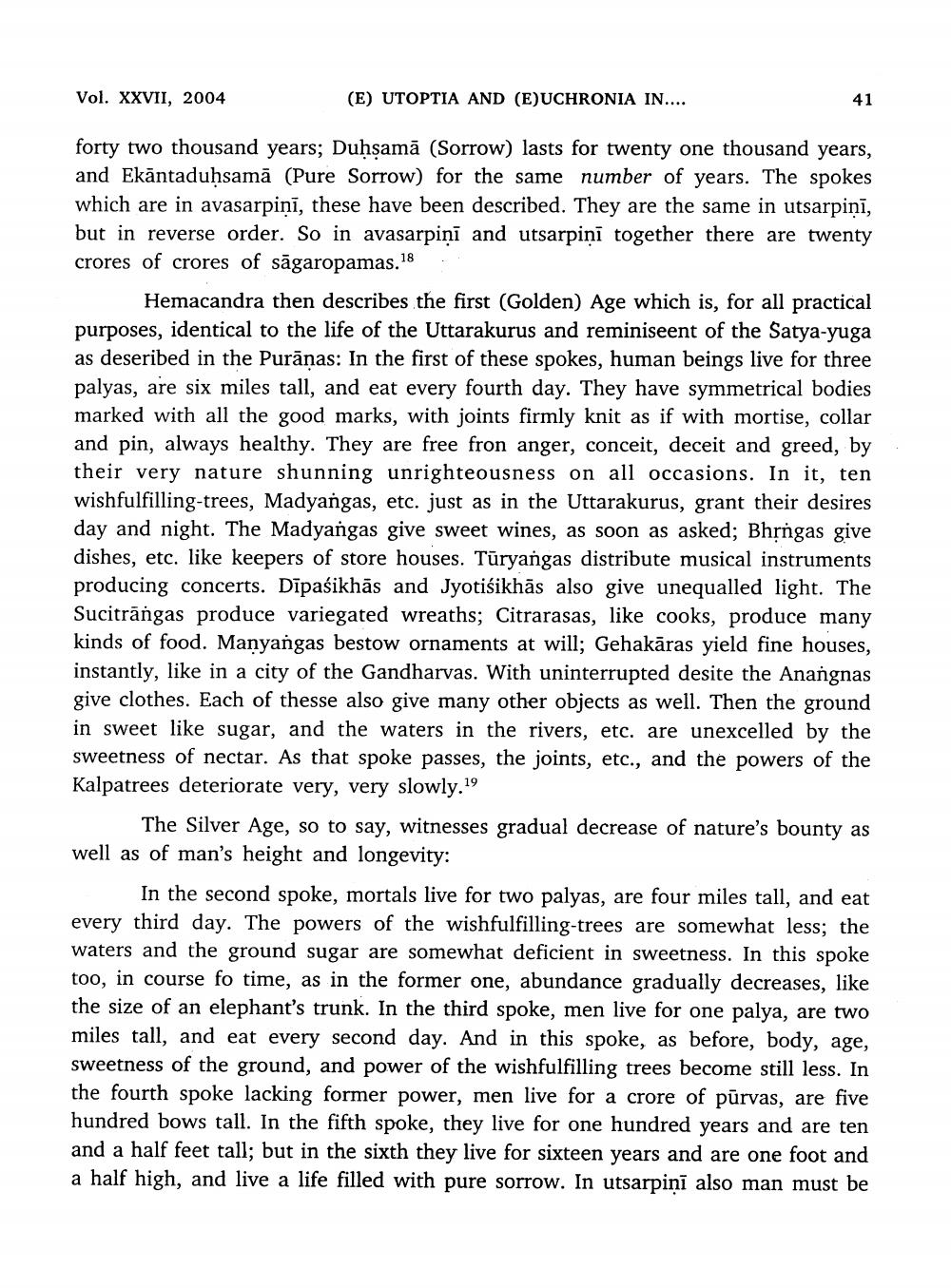________________
Vol. XXVII, 2004
(E) UTOPTIA AND (E)UCHRONIA IN....
forty two thousand years; Duhsamā (Sorrow) lasts for twenty one thousand years, and Ekāntaduḥsamā (Pure Sorrow) for the same number of years. The spokes which are in avasarpiņī, these have been described. They are the same in utsarpinī, but in reverse order. So in avasarpiņi and utsarpiņi together there are twenty crores of crores of sāgaropamas.18
.
Hemacandra then describes the first (Golden) Age which is, for all practical purposes, identical to the life of the Uttarakurus and reminiseent of the Satya-yuga as deseribed in the Purānas: In the first of these spokes, human beings live for three palyas, are six miles tall, and eat every fourth day. They have symmetrical bodies marked with all the good marks, with joints firmly knit as if with mortise, collar and pin, always healthy. They are free fron anger, conceit, deceit and greed, by their very nature shunning unrighteousness on all occasions. In it, ten wishfulfilling-trees, Madyangas, etc. just as in the Uttarakurus, grant their desires day and night. The Madyangas give sweet wines, as soon as asked; Bhộngas give dishes, etc. like keepers of store houses. Tūryangas distribute musical instruments producing concerts. Dīpaśikhās and Jyotiśikhās also give unequalled light. The Sucitrāngas produce variegated wreaths; Citrarasas, like cooks, produce many kinds of food. Manyangas bestow ornaments at will; Gehakāras yield fine houses, instantly, like in a city of the Gandharvas. With uninterrupted desite the Anangnas give clothes. Each of thesse also give many other objects as well. Then the ground in sweet like sugar, and the waters in the rivers, etc. are unexcelled by the sweetness of nectar. As that spoke passes, the joints, etc., and the powers of the Kalpatrees deteriorate very, very slowly.19
The Silver Age, so to say, witnesses gradual decrease of nature's bounty as well as of man's height and longevity:
In the second spoke, mortals live for two palyas, are four miles tall, and eat every third day. The powers of the wishfulfilling-trees are somewhat less; the waters and the ground sugar are somewhat deficient in sweetness. In this spoke too, in course fo time, as in the former one, abundance gradually decreases, like the size of an elephant's trunk. In the third spoke, men live for one palya, are two miles tall, and eat every second day. And in this spoke, as before, body, age, sweetness of the ground, and power of the wishfulfilling trees become still less. In the fourth spoke lacking former power, men live for a crore of pūrvas, are five hundred bows tall. In the fifth spoke, they live for one hundred years and are ten and a half feet tall; but in the sixth they live for sixteen years and are one foot and a half high, and live a life filled with pure sorrow. In utsarpinī also man must be




